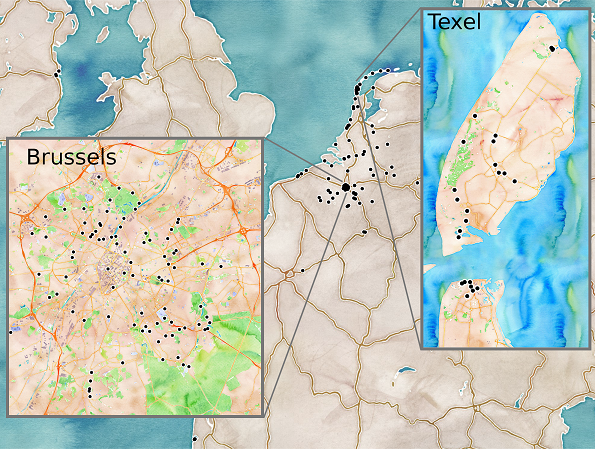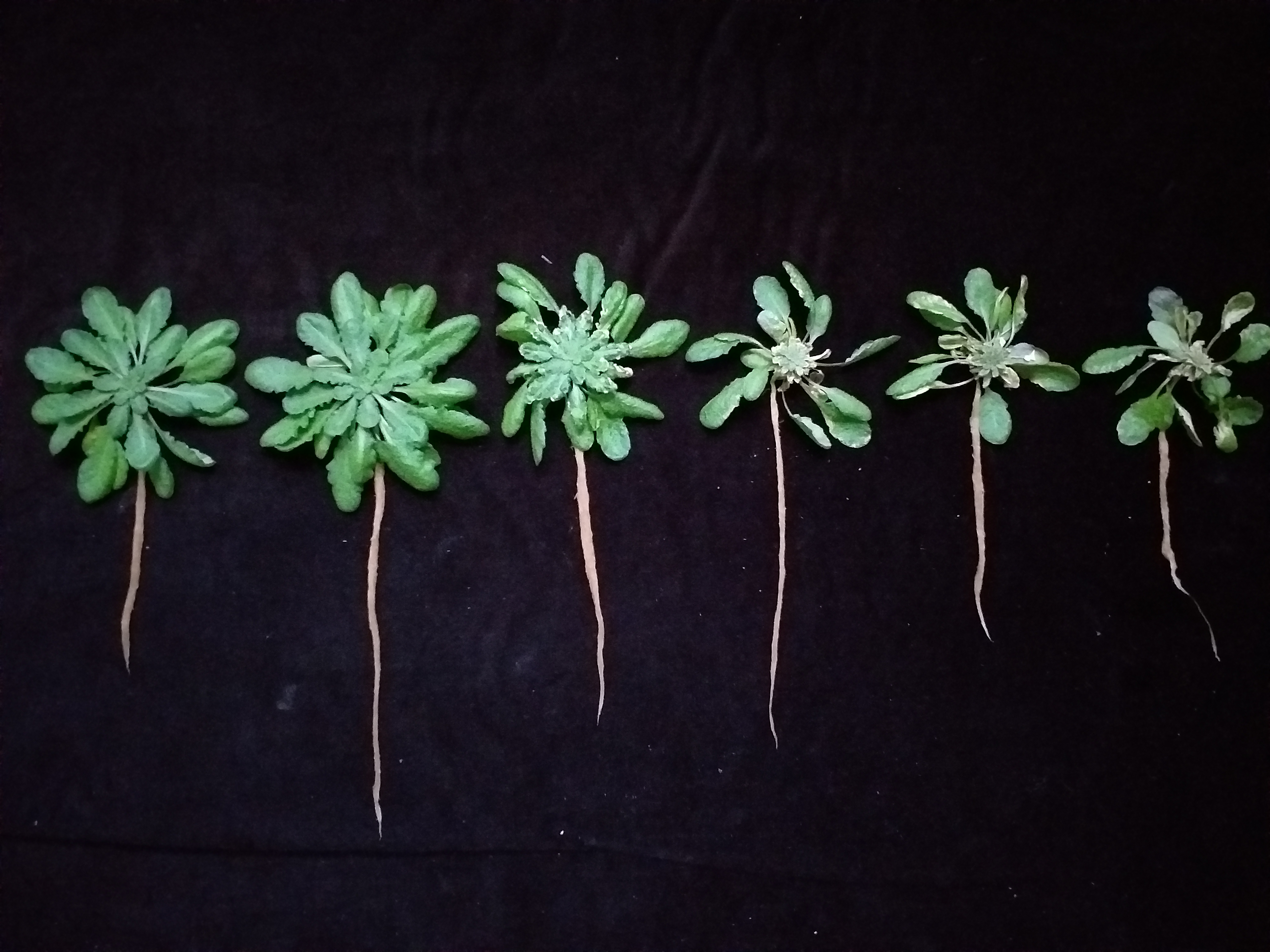In the same section
- Crop Nutrition Unit
-
Photobiocatalysis Unit
- David Subject 1
- David Subject 2
- Publications
- Collaborations
- Current Projects
Natural variation of the ionome
The ionome is the mineral nutrient and trace element composition of an organism. Ionomics is a high-throughput elemental profiling approach to study the molecular mechanistic basis underlying the ionome (Molecular Plant 9 : 787-797). The Arabidopsis thaliana species has a broad geographical distribution and offers a great opportunity to unravel variation in adaptive evolutionary responses to the environment.
This research focuses on naturally occurring genetic variability of the ionome. The plant material is a unique collection of 210 Arabidopsis accessions, which we have collected in Belgium and the Netherlands. A special emphasis is put on the urban environment of Brussels city (Belgium) and the Texel island (the Netherlands). During a ‘common garden’ experiment carried on agar plates, we have measured the elemental profiles and root morphological traits. Our goal is to establish and understand correlations between the soil physico-chemical characteristics of harvesting sites and phenotypic traits measured under controlled laboratory conditions. A genome wide association study is conducted to identify genes and alleles that regulate phenotypic traits. This fundamental knowledge gained in the model species Arabidopsis could help defining strategies to optimize root morphology and to improve the nutritional value, through the marker assisted selection of cultivated plants with more complex genomes (e.g., rapeseed).

Cesium toxicity
Cesium is a rare chemical element that has physical and chemical properties like that of potassium. That element is not essential for plant growth. Cesium has only one stable isotope (133Cs) and several radioisotopes (e.g., 137Cs). In 2011, the accident at the Fukushima Daiichi nuclear power plant released radioactive nuclides in agricultural areas of Japan. Thus, there is a pressing need to understand the absorption and transport mechanisms of cesium in plants, to develop strategies for minimizing environmental pollution and contamination of agricultural products.
This research is focused on understanding the effects of cesium toxicity on the physiology of Arabidopsis and poplar tree, under laboratory conditions. Plants are intoxicated with stable cesium for global transcriptome sequencing in roots and leaves, and some candidate genes related to cesium absorption and transport are identified.

